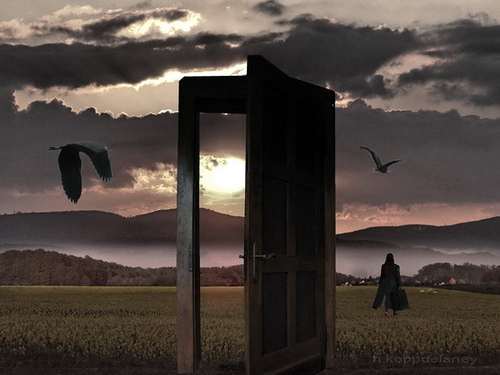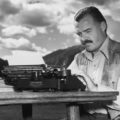By Steve Kayser
This is the final in a series of articles from an interview with Dr. Ken Blanchard about his newest book, “Great Leaders Grow: Becoming a Leader for Life.
GROW is an acronym and a strategy for business and life.
“G” stands for “gaining knowledge.””
“R” for “reaching out to others.”
“O” for opening your world.”
“W” for “walk towards wisdom.
OPENING YOUR WORLD
Steve Kayser: The “O” in GROW, stands for “Opening your world.” Three simple words, but big implications. What does it mean?
Ken Blanchard: It’s looking for new opportunities to learn. Both on and off of work. For example, at work, have you ever thought about;
- Shadowing somebody from another department?
- Volunteering to run a social activity for the company?
- Creating opportunities for you to constantly learn, to look for mentors, to find people that can just expand your world?
CALL SECURITY!
Steve Kayser: I tried shadowing somebody at work once. Someone I hoped would be my mentor, the Treasurer of our company. He called security on me.
Ken Blanchard: Ha-ha, He thought you were after the money! Opening your world means you’re always looking for ways to grow in your own position by opening your world where you work.
Outside the office, you ought to travel quite a bit so you can learn from that. New perspectives, new people. Maybe even learn a new language. In our company, we have everybody have one goal per year. If they accomplish it, they will have something new on their resume that they didn’t have the year before.
STRETCH YOURSELF BEFORE YOU WRECK YOURSELF
You want to constantly stretch yourself and open your world to new learning opportunities.
Steve Kayser: I’ll throw a curveball at you … why? (After a pregnant pause, I suspect Dr. Blanchard has never been grilled by a sleuth like me.)
Ken Blanchard: Because, you can get so busy and focused on what you are doing that all of a sudden you wake up one day and find you’re behind. You grow stale. Your usefulness at work declines. Not a good place to head.
WALK TOWARD WISDOM
Steve Kayser: The “W” in GROW stands for “Walk Towards Wisdom.” My favorite part of the book actually. But, there is a difference between knowledge and wisdom.
Knowledge is knowing a tomato is fruit. Wisdom is knowing it shouldn’t be in my fruit salad.
When you say, “Walk Toward Wisdom,” what do you mean? Wisdom is often only attributed to gurus, saints and sages.
Ken Blanchard: Wisdom as we define it is;
WISDOM: The application of kind of accumulated knowledge and experience.
It’s one thing to know something but if it can’t impact what you do, it’s not really wisdom.
Contrary to what you might think, wisdom has little to do with age, because we’ve all known younger people who might be described as wise beyond their years. Many of us can probably also say we know a few old fools.
The truth is, wisdom is attained bit-by-bit throughout our lifetime. It’s always within reach, but it must be pursued. It’s, keeping your eyes open, learning new things and then see how they can be applied and used in your life and the life of others.
It’s a Walk Towards Wisdom.
Steve Kayser: It’s a “constant becoming?”
SELF-EVALUATION
Ken Blanchard: Yes. You could say that. In the book we talk about different elements of wisdom.
AND I SAID TO MYSELF, “SELF … WHAT’S WORKING?”
One is that old concept about self-evaluation, looking into the mirror and being truthful about yourself.
What’s working and what’s not working in your life and career?
Are you considering your strengths and how you can leverage them?
Are you reflecting on your weaknesses to try to fix them?
Self-evaluation is such an important thing.
FEEDBACK
Another one I have always loved is, “Feedback is the breakfast of champions.”
Do you have people around you who give you feedback and are honest with you?
Do you have truth tellers in your life?
A lot of times people live with truth tellers if you only listen to them.
Do your friends level with you?
Steve Kayser: Sometimes that’s hard to do, especially if they’re friends from work.
Ken Blanchard: But what’s the value of true friends? Well, they are honest with you. They will tell you the truth.
I grew up with a lot of guys that went to school at Cornell and nobody lets anybody act like a big deal. We were at a restaurant one time, eight couples, we’d known each other for fifty years and a waiter comes up,
“We understand the author of “The One Minute Manager” is in your group, could we get his autograph?”
And it was almost on cue, they all shouted,
“Why do you want his autograph? Hell, he never even went to class, you know. What was his average? About 70…”
And they just put everything in perspective.
Steve Kayser: A walk toward wisdom also means a dogged determination to ask questions that matter. Especially if you want to be a great leader in business … or life.
Ken Blanchard: Yes. A friend of ours, Shawn Harris, who built Cold Stone Creameries, once said there are three kinds of leaders.
THREE KINDS OF LEADERS – PERIOD
There is the “period,” which is,
“Here is my opinion. (period)”
Not good.
EXCLAMATION!
“Here is what I think! (exclamation point)”
The worst! But the great leaders are “question marks.”
QUESTION?
They ask great questions like,
“Here is my opinion about what I think we ought to do, but what do you think about it?”
If they say,
“Well, I don’t really know if I could add anything to that.”
“Well, if you did, what would you add?”
And they keep on asking questions, because then you’re going to learn because I think, as I said before, none of us is as smart as all of us.
Steve Kayser: I heard a couple of people in the hallway where I use to work talk about a person that wasn’t keeping up with his job or learning new skills . One of the younger ones said,
“He should be put out to pasture,”
Because he was too old to learn. And I said,
“That’s not true, anybody can learn anything at anytime.”
Somehow the conversation got back to him and he was deeply hurt. I followed up with him and sent him a quote by one of my favorite writers, Richard Bach. A writer much like you, full of wit and wonderful wisdom.
“Here’s a test to find whether your mission on earth is finished.
If you’re alive, it isn’t.”
Ken Blanchard: Yes, some people repeat the same year, year-after-year, and don’t grow. That’s why I think it’s so valuable for you to personally, all of us, to say,
- What can l learn this year that I can put on my resume that wasn’t there last year?
- How do I constantly grow and push my mental envelope?
I got a chance to write a book with Norman Vincent Peale, who wrote The Power of Positive Thinking. I met him in 1986 when he was 88 years old. He was so excited about life. And I said, “Why are you so excited?” He said,
“Everyday is an opportunity to learn something new, I just never know what I’m going to learn.”
That’s just such a powerful example for anyone. And it’s been such an inspiration to me.
###
OTHER ARTICLES FROM THIS SERIES
Great Leaders GROW – Interview with Bestselling Author Dr. Ken Blanchard
Who Influenced You?
Stand Aside for an Officer, You Can’t All be Saved!
Flickr photo courtesy of H.Kopp Delaney – 
 Some rights reserved.
Some rights reserved.




Recent Comments
Lessons Learned from Hollywood STORY Guru Robert McKee